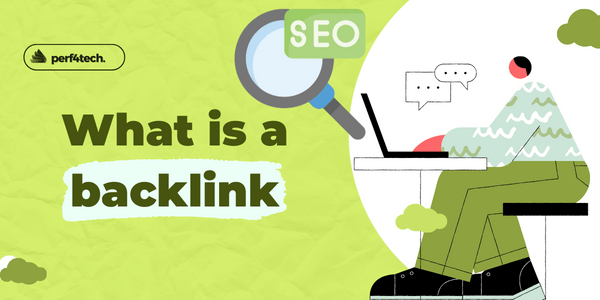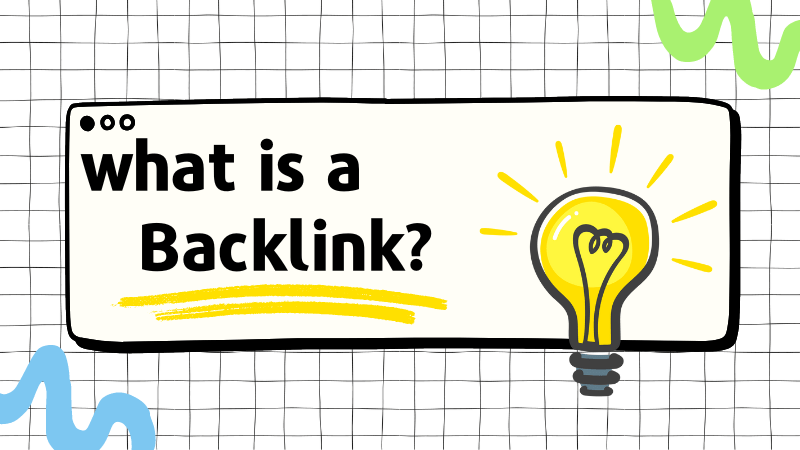In SEO strategy you always see or listen to a word called backlink! What is a backlink and how can it affect our website and start ranking in the first search results in Google so Let’s know more about backlinks in this full guide.

Table of Contents
Toggle1. What is a Backlink?
backlink is an important component of search engine optimization (SEO) strategies. It serves as a hyperlink from one web page to another, essentially acting as a vote of confidence for the linked page. These links are akin to digital endorsements, signaling to search engines that the linked content is valuable and relevant they are a primary factor that search engines like Google use to assess the authority and relevance of a webpage.
2. Understanding Backlinks
1. Importance of Backlinks
Backlinks are pivotal in determining a website’s ranking in search engine results pages (SERPs). Search algorithms perceive backlinks as indicators of trust and credibility, rewarding pages with high-quality inbound links with higher rankings.
3. Types of Backlinks
In backlinks, we have the following:
- Follow and nofollow backlink
- Natural backlink
- Manual backlink
- Self-created backlink
- Editorial backlinks
1. follow and nofollow Backlink
follow backlinks allow search engine crawlers to follow the link and index the linked page’s content, while nofollow backlinks instruct crawlers not to follow the link, thus not passing authority to the linked page. Both types of backlinks can play a role in a website’s SEO strategy, but follow backlinks are generally considered more valuable for improving search engine rankings.
2. Natural Backlinks
Natural backlinks are those that are organically acquired without any solicitation from the linked website. These links are typically earned through compelling content, viral marketing campaigns, or genuine recommendations from other webmasters.
3. Manual Backlinks
Manual backlinks are those acquired through deliberate efforts such as outreach, guest posting, or requesting links from relevant websites. While these links require proactive engagement, they offer greater control over the quality and relevance of the backlink profile.
4. Self-Created Backlinks
Self-created backlinks are generated by website owners themselves through tactics like forum signatures, blog comments, or directory submissions. However, search engines tend to devalue these links due to their manipulative nature.
5. Editorial Backlinks
Editorial backlinks are links that are naturally included within the content by editors, journalists, or bloggers. These links are highly valued as they are based on the merit and relevance of the linked content.
4. How Backlinks Work
1. Backlink Anatomy
A backlink consists of two essential components: the anchor text, which is the clickable text displayed to users, and the destination URL, which is the webpage to which the link directs users. Search engines analyze both the anchor text and the source web page’s content to determine the relevance and authority of the backlink.
2. Link Juice
Link juice refers to the equity passed from one webpage to another through backlinks. When a high-authority webpage links to another page, it transfers a portion of its authority, thereby enhancing the linked page’s credibility and potential for higher rankings.
5. Benefits of Backlinks

1. SEO Benefits
Backlinks are a cornerstone of SEO, influencing a website’s visibility and ranking on search engine results pages. Websites with a robust backlink profile are more likely to rank higher for their target keywords, driving organic traffic and increasing visibility.
2. Increased Referral Traffic
Beyond SEO, backlinks also serve as conduits for referral traffic, directing users from one website to another. Quality backlinks from authoritative sources can generate significant traffic influx, contributing to enhanced brand exposure and user engagement.
3. Building Authority
Backlinks from reputable websites act as endorsements, signaling to search engines and users alike that the linked content is trustworthy and credible. Over time, a strong backlink profile can establish a website’s authority within its niche, fostering trust and loyalty among audiences.
6. Creating Quality Backlinks
1. Guest Blogging
Guest blogging involves writing and publishing articles on external websites within your industry or niche. By contributing valuable content to authoritative platforms, you can earn backlinks while establishing yourself as a thought leader in your field.
2. Broken Link Building
Broken link building entails identifying broken links on other websites and reaching out to the site owners to suggest replacing them with relevant links to your content. This strategy allows you to provide value while securing valuable backlinks.
3. Infographics
Infographics are visually engaging assets that present complex information in a digestible format. By creating compelling infographics and sharing them across relevant platforms, you can attract backlinks from sites looking to enrich their content with visual resources.
7. Common Backlinking Mistakes
1. Buying Backlinks
Purchasing backlinks from shady vendors or participating in link schemes violates search engine guidelines and can result in severe penalties, including deindexing or ranking demotion. It’s essential to prioritize organic link-building strategies to avoid risking your website’s credibility.
2. Ignoring Relevance
Focusing solely on acquiring backlinks without considering their relevance to your content or target audience can diminish their effectiveness. Relevant backlinks from authoritative sources carry more weight in search engine algorithms and resonate better with users.
3. Neglecting Anchor Text Optimization
The anchor text used in backlinks plays a crucial role in determining their relevance and impact on SEO. Neglecting to optimize anchor text with target keywords or descriptive phrases can hinder the link’s effectiveness and diminish its potential SEO value.
8. Measuring Backlink Quality
1. Domain Authority
Domain Authority (DA) is a metric developed by Moz that predicts a website’s ranking potential based on its backlink profile, content quality, and overall authority. Websites with higher DA scores are more likely to rank well in search engine results.
2. Page Authority
Page Authority (PA) is a metric similar to DA but focuses specifically on the authority of individual web pages. Pages with high PA scores are more likely to rank for their target keywords and attract organic traffic from search engines you can add Moz extension on your browser to give you all the information about PA and DA.
3. Relevance and Context
In addition to authority metrics, the relevance and context of backlinks are critical factors in determining their quality. Backlinks from websites within the same industry or niche, and contextually relevant content, carry more weight in search algorithms.
9. Future of Backlinks
1. Evolving Algorithms
As search engine algorithms continue to evolve, the significance of backlinks in SEO strategies may shift. While backlinks remain a fundamental ranking factor, search engines are increasingly prioritizing factors like user experience, content quality, and mobile-friendliness.
2. Importance in Digital Marketing Trends
Despite evolving trends, backlinks are likely to retain their importance in digital marketing strategies. As long as search engines rely on links to assess website authority and relevance, backlinks will remain a valuable currency in the online ecosystem.
FAQs

Q1 How do backlinks affect SEO?
Backlinks play a pivotal role in SEO by enhancing a website’s authority, visibility, and ranking potential in search engine results.
Q2 Can I rank without backlinks?
While it’s possible to rank without backlinks, especially for less competitive keywords, building a strong backlink profile significantly improves a website’s chances of ranking higher in search results.
Q3 Are all backlinks beneficial?
Not all backlinks are created equal. High-quality, relevant backlinks from authoritative sources are beneficial for SEO, while low-quality or irrelevant backlinks can harm a website’s reputation and rankings.
Q4 How do I get high-quality backlinks?
You can acquire high-quality backlinks through tactics like guest blogging, broken link building, influencer outreach, and creating compelling, shareable content that naturally attracts links.
Q5 Should I disavow bad backlinks?
Disavowing bad backlinks can be necessary if you’ve been penalized for manipulative link-building practices or if your website has acquired toxic backlinks from spammy or irrelevant sources.
Q6 What is the difference between inbound and outbound links?
Inbound links, also known as backlinks, are hyperlinks from external websites pointing to your site, while outbound links are hyperlinks from your site to external websites.
Conclusion
In conclusion, understanding the significance of backlinks is crucial for anyone navigating the complexities of SEO and digital marketing. By leveraging high-quality backlinks, businesses can enhance their online visibility, authority, and credibility, ultimately driving sustainable growth and success in the digital landscape.
finally, I hope my article adds valuable information to you if you have any questions let me know in the comment section below, I will try my best to answer them.




